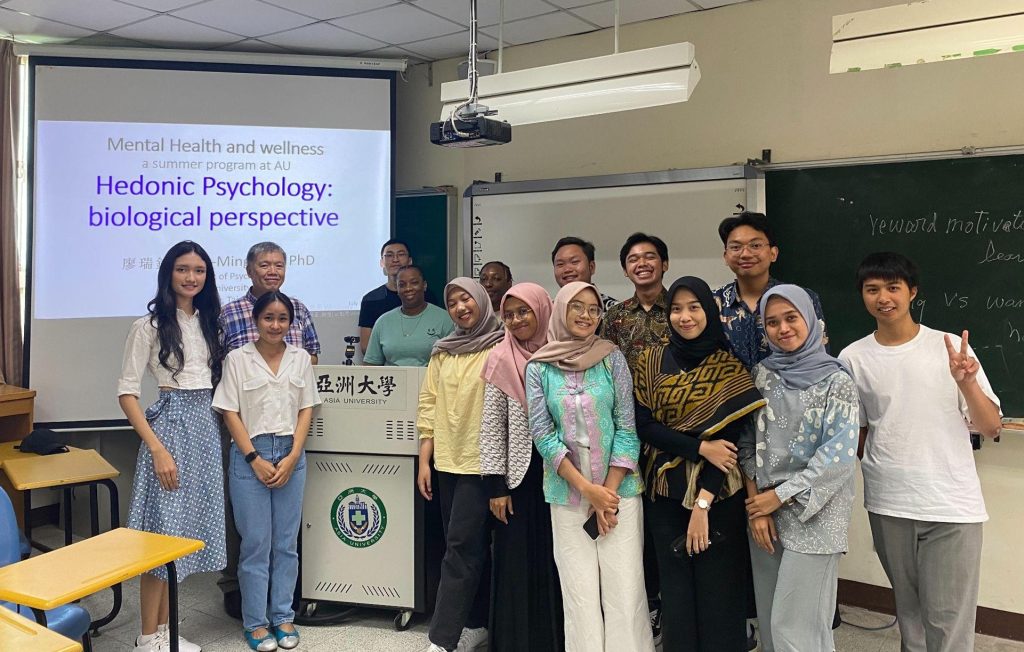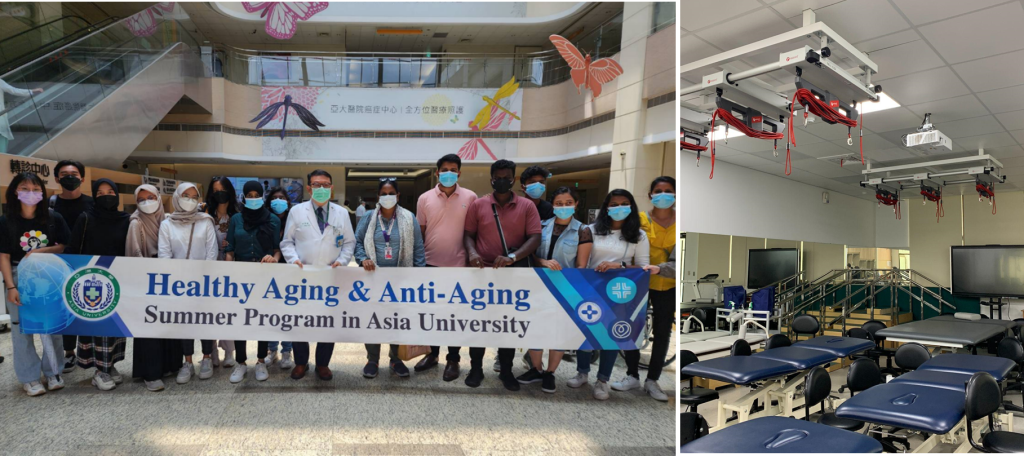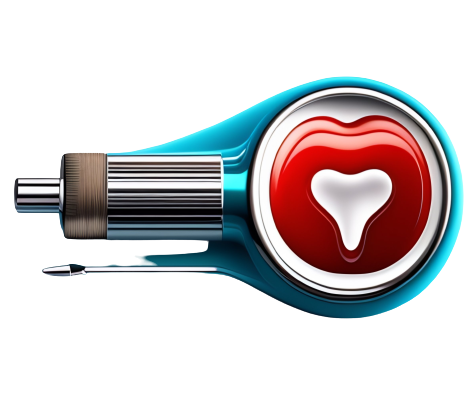Hello! My name is Niswatin Fahma Wibowo. I am a fourth year medical student at Faculty of Medicine Universitas Airlangga (FK UNAIR). In June 2023, I got the opportunity to participate in the Asia University Summer Program 2023. I found out about this program through the Airlangga Global Engagement (AGE) social media account. There were 9 students from Universitas Airlangga who took part in this program, 5 of them from the Faculty of Medicine.
Asia University (AU) is a private university in Taichung, Taiwan and one of the rapidly growing universities in Taiwan. Asia University offers various undergraduate and postgraduate programs in areas such as business management, design, information technology, medicine, and others. Asia University has its own hospital near the campus and has their own museum named Asia Museum of Modern Art. The campus has very nice buildings and good atmosphere for studying.
Asia University Summer Program 2023 is a summer program organized by this university. The program lasts four weeks from June to August and is open to students from all over the world. The program offers a variety of exciting academic and cultural activities, including lectures, seminars, workshops, and industrial visits. Students can choose 2 programs for this short course. I chose Mental Health & Wellness for the first and second week, and continued with the Healthy Aging & Anti-Aging course for the third and fourth week.
The first course mainly talks about psychology. The topics for the lecture are positive psychology, social psychology, health psychology, and hedonic psychology. It is common for the lecturer to make a group for the student to take a small group discussion about the topic that the lecturers explain so that the class is not boring and we can understand more about the material.
The positive psychology lecture has illuminated the transformational impact of concentrating on our strengths, developing good emotions, and creating meaningful connections in our lives. Positive thinking and the use of mindfulness techniques help us overcome obstacles with more resiliency and experience delight in the here and now. The evidence-based approaches presented in the lecture underscore the scientific rigor of positive psychology, making it a compelling and practical framework for personal growth and well-being. Moreover, the holistic nature of positive psychology acknowledges the complexity of human experience and encourages a balanced perspective that embraces both positive and negative emotions. We have the opportunity to build a more compassionate, prosperous, and flourishing society when we apply the ideas of positive psychology to a variety of spheres of life, from the workplace and school to personal growth and clinical settings. This insightful lecture concludes with an energizing call to action to embrace the power of positivity and to develop a life that is full of meaning, resiliency, and genuine happiness.

The learning system in this summer program course is a material lecture with some discussions in it. In the second course, Healthy Aging & Anti-Aging, we were introduced to the knowledge of aging. Population aging is a global issue, and aging is a serious problem, especially in Japan and China. There is an increase in diseases due to population aging, of which the highest is stroke followed by cancer, heart attack, and diabetes, the theory of aging with genetic mutation, the molecular mechanism of aging, which has 2 factors, namely intrinsic factors and extrinsic factors, as well as antioxidants where these factors cause molecular damage which then causes defects in cells so that there is tissue dysfunction to cause aging, and its relationship with the environment, as well as how the development of studies in Taiwan. We also involved sensory integration activities, strength training: such as lifting weights, mindfulness, aromatherapy: we were given some aromatherapy to breathe and feel, and expressive arts: such as drawing accompanied by music, how we express it in the drawing, as a practice in successful aging.
We have field trip schedule to the Department of Occupational Therapy, Asia University Hospital, and the Department of Physiotherapy. This field trip is part of the class schedule. We had the opportunity to visit the Department of Occupational therapy at Asia University. On this field trip, we were invited to take a tour of the department, then we visited activities such as the lab, and the exercise center. We were also explained some of the uses related to the tools inside. And then we visited Asia University Hospital. We were guided by Pof. Hui-Chi Tien from the Department of Audiology and Speech-Language Pathology. We observe the department of audiology, emergency room, cardiopulmonary rehabilitation center, and center of robotic rehabilitation. We also had a lecture class at Asia University Hospital. And we also visited the physiotherapy department to see what was learned there, we were also explained about the tools used in physiotherapy and how to use them. We also able to practice there.

On weekends, my friends and I went to several tourist destinations, such as the National Museum of Fine Arts Taiwan, Sun Moon Lake, Chiang Kai-Shek Memorial Hall, and Taipei 101. We also went to several night markets which contained typical Taiwanese street food and to buy some souvenirs. We go there mostly by using public transport such as bus, U-bike, and local trains.
I am beyond grateful to all the people that were involved in this outbound program, for giving me the opportunity to join this program. I learned many things about science theory, especially mental health & wellness and healthy aging & anti aging. From this program, I also learn about social and culture in other countries. We trained to be confident, dare to try, disciplined, respect each other, and independent.
By: Niswatin Fahma Wibowo
source
https://unair.ac.id

